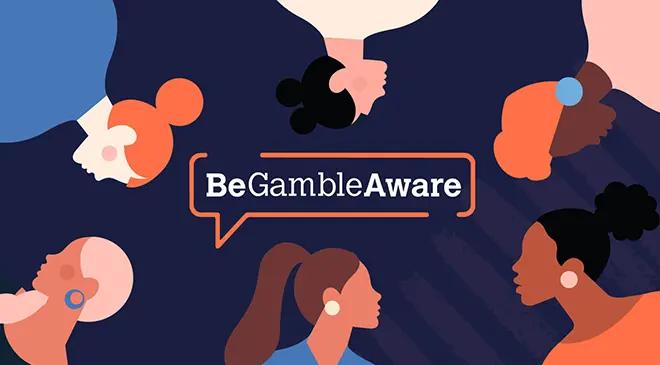 Last week, the independent charity GambleAware published the results of a comprehensive study centred around children and their exposure to both gambling-like content like loot boxes as well as adverts promoting real-money gambling. As the risk of being impacted by pathological gambling is 2.3 times higher when one has been exposed to gambling at a young age, according to previous GambleAware-led research, the results provide valuable insight into what needs to be done to protect UK youth from gambling harm.
Last week, the independent charity GambleAware published the results of a comprehensive study centred around children and their exposure to both gambling-like content like loot boxes as well as adverts promoting real-money gambling. As the risk of being impacted by pathological gambling is 2.3 times higher when one has been exposed to gambling at a young age, according to previous GambleAware-led research, the results provide valuable insight into what needs to be done to protect UK youth from gambling harm.
However, the Betting and Gaming Council (BGC) told daily newspaper The Guardian that, last year, the UK Gambling Commission (UKGC) observed a decline in how much young people are exposed to gambling ads. The BGC also said that, according to the UK Government, researchers have not identified a connection between gambling adverts and problem gambling.
Key Findings of GambleAware’s Study
 According to GambleAware’s data, children and young adults who took part in the study saw gambling as something that was “a normal part of everyday life.” Adverts were found to be particularly problematic, as many have been designed with cartoon graphics and other elements that can appeal to children. A teenager told interviewers that ads made gambling seem like a game and that it did not look like gambling. This view was widespread among participants, and loot boxes in games further served to mask how harmful wagering can be.
According to GambleAware’s data, children and young adults who took part in the study saw gambling as something that was “a normal part of everyday life.” Adverts were found to be particularly problematic, as many have been designed with cartoon graphics and other elements that can appeal to children. A teenager told interviewers that ads made gambling seem like a game and that it did not look like gambling. This view was widespread among participants, and loot boxes in games further served to mask how harmful wagering can be.
It also appears that children and young people are not given sufficient information regarding the exact risks associated with wagering and games of chance. One girl shared that during Personal, social, health, and economic education (PSHE) classes, educators had dubbed gambling dangerous but had failed to give enough details. A lot of participants told researchers they welcomed being provided with further education on the matter, especially on how they could access support.
Even more concerning were reports of children who claimed they had partaken in real-money gambling activities with the help of a family member. This pertains to non-direct participation, where an adult would place bets or play slots on the child’s behalf. Some parents have also purchased lottery tickets for their children.
How Advocates for Gambling Reform Believe the Issue Should Be Addressed
 Stressing just how dangerous the normalisation of gambling can be for children, GambleAware CEO Zoë Osmond called for further restrictions to be introduced in order to prevent gambling ads and content from being shown in spaces where exposure is possible. CultureStudio Research’s founder, Hanna Chalmers, also argued that protections are necessary.
Stressing just how dangerous the normalisation of gambling can be for children, GambleAware CEO Zoë Osmond called for further restrictions to be introduced in order to prevent gambling ads and content from being shown in spaces where exposure is possible. CultureStudio Research’s founder, Hanna Chalmers, also argued that protections are necessary.
Nicki Karet, who serves as Sherbert Research’s managing director, put an emphasis on how confusing the “grey area between online gambling and gambling-like gaming” can be for youth, as it makes it difficult for children to differentiate between what is considered gambling and what is not. She added that gambling ads that appeal to young people exacerbate the issue and that regulators must introduce measures to prevent this. Dr Barbie Clarke, Managing Director of Family Kids & Youth, also noted how vulnerable children with developmental and cognitive differences were at an even greater risk of not understanding gambling harm.
Recovering problem gambler Sam Starsmore, who began gambling when he was only 16, gave his own situation as an example, as his sportsbook betting sessions with friends eventually gave way to solo gambling that took a turn for the worse. He, like everyone mentioned thus far, is in favour of more steps being taken toward protecting children.
Current Measures to Prevent Exposure
 Prior to highlighting the Gambling Commission’s data, the Betting and Gaming Council (BGC) stressed that its member operators have implemented mandatory age verification that restricts young people’s access to gambling products. The BGC also described how companies have “introduced new age gating rules for advertising on social media platforms.”
Prior to highlighting the Gambling Commission’s data, the Betting and Gaming Council (BGC) stressed that its member operators have implemented mandatory age verification that restricts young people’s access to gambling products. The BGC also described how companies have “introduced new age gating rules for advertising on social media platforms.”
At present, gambling ads also fall under the regulatory oversight of the Advertising Standards Authority (ASA). The ASA spoke with The Guardian on the matter, clarifying that there are special restrictions in place that are specifically centred around ads that can inadvertently target youth.
The Department for Culture, Media and Sport also responded to The Guardian, saying that they “pay close attention to emergent forms of gambling and gambling-like products” and that this includes social casino games.
It should be noted, however, that in the UK Government’s Gambling White Paper, there are proposals that aim to protect children and young adults. One such amendment will see Category D slot machines no longer being allowed for anyone who has not yet turned 18.
- Author


